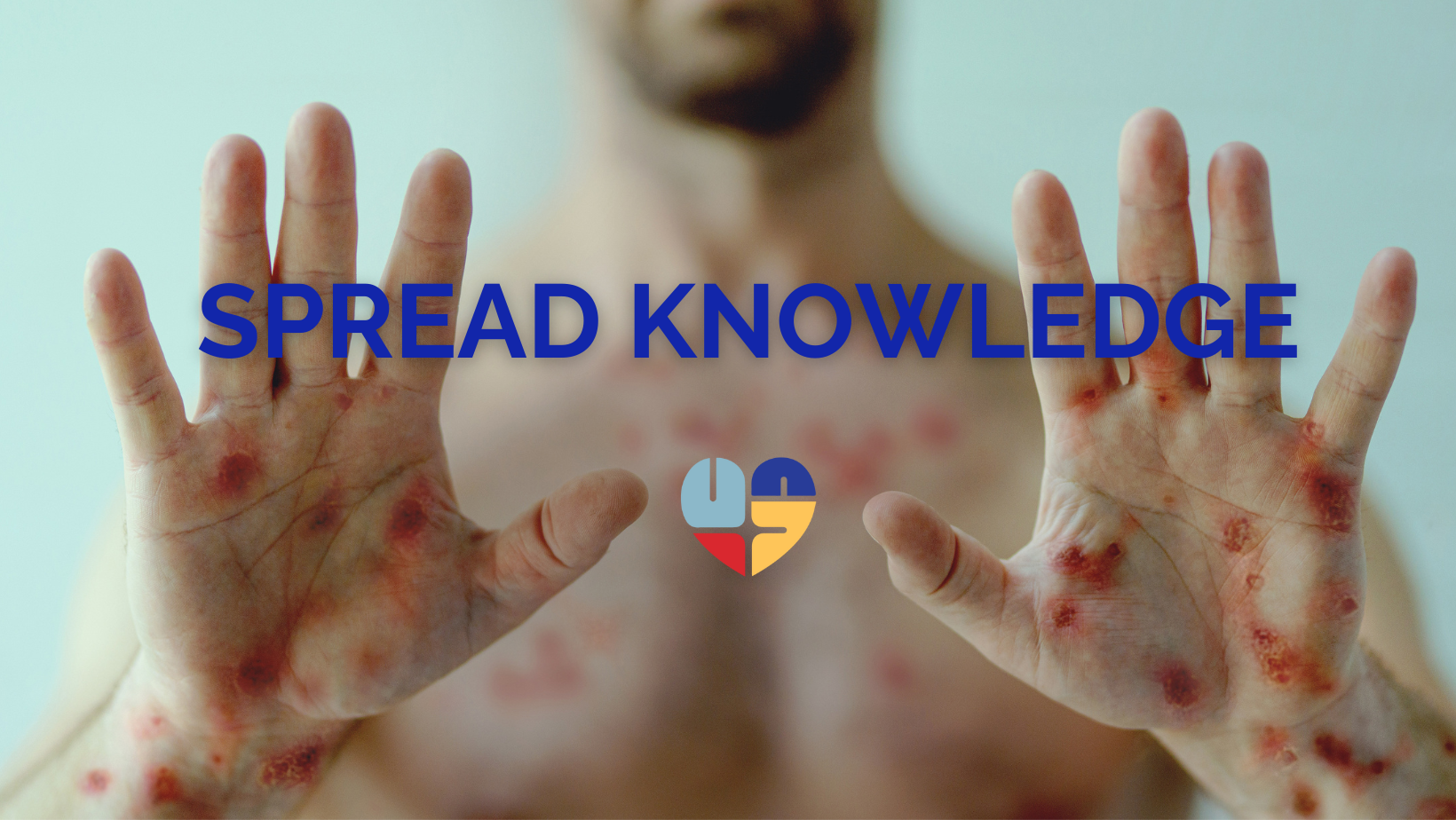MPOX FAQs
What is MPOX?
MPOX is a virus that had its beginnings as a zoonotic virus (from animal-to-human, human-to-human, and human-to-animal) but this current clade is mostly associated with human-to-human transmission. It is a member of the Orthopoxvirus genus in the family Poxviridae which means it is very much like chickenpox or smallpox (though not nearly as severe).
Who is at risk?
Anyone can catch MPOX. The virus does not discriminate between who it affects and can be spread outside of sexual activities (Canada, 2022). That said, we are seeing a disproportionate rate among the Queer Community and this community has become a priority for vaccination.
How is it transmitted?
MPOX is usually transmitted through human-to-human contact with a positive case, but can also be transmitted when a person comes into contact with contaminated objects such as clothing or bedding (Canada, 2022).
MPOX can be transmitted through respiratory droplets at close range but does not spread through the air over long distances.
MPOX is sexually transmissible but whether it is formally an STBBI is still being reviewed (though high contents of the virus have been found in seminal fluids). It is transmitted through close or intimate contact.
How do I know if I have it?
Symptoms include fever, headache, muscle aches, back pain, low energy, swollen lymph nodes, and skin rash or lesions.
The rash usually begins at the end of the fever. Lesions can be flat or slightly raised, filled with clear or yellowish fluid, and can then crust, dry up and fall off.
The rash frequently shows up on the palms of the hands, and soles of the feet in the mouth, on the throat, on the genitals, or on mucosal walls of the vagina or anus.
How long does it last?
Symptoms usually resolve on their own within 2-4 weeks.
How is MPOX managed?
The illness is often mild and treatment is mainly supportive.
What do I do if I think I have MPOX?
If you have symptoms, we recommend that you seek the advice of a healthcare provider or visit a medical clinic for assessment.
You should also refrain from being in close social contact with others until tested. If you test positive, follow the advice given by the healthcare provider.
You can seek testing or vaccination through the STI clinic by calling 1 855-945-6700.
Who is at the highest risk of contracting MPOX?
Those at higher risk of contracting the virus include people who are or have been sexually active (particularly in the Gay, Bi, and Men who have sex with men community). Children, people who are pregnant, and those with compromised immune systems are at risk of more complications.
How do I protect myself?
Avoid skin-to-skin or face-to-face contact with anyone who has MPOX symptoms, and if you suspect you have symptoms, get checked by a healthcare provider.
Get tested by calling the STI clinic by calling 1 855-945-6700.
Book your vaccination by calling the MPOX Hotline through AHS 1-866-301-2688 7 days a week 8am to 9PM
Continue to use safer sex practices, practice good hand hygiene, and maintain respiratory etiquette (keep 3 metres of distance between people / wear a mask).
Are there any cases in Alberta?
Yes, MPOX has 43 recorded cases in Alberta.
Is there a vaccine?
Yes, Alberta residents 18 years and older eligible for the MPOX vaccine include:
- transgender, cisgender, or two-spirit individuals who self-identify as belonging to the gay, bisexual and other men who have sex with men (gbMSM) community and who meet at least one of the following criteria:
- have received a recent (in the last 6 months) diagnosis of a sexually transmitted infection
- are planning to have, or in the past 90 days had, sex outside of a mutually monogamous relationship
- have attended venues for sexual contact within the past 90 days (for example bathhouses, sex clubs) or may be planning to, or who work/volunteer in these settings
- any sexual contact with the individuals described above
- staff and volunteers in a social setting or venue or event where sexual activities between men (individuals described above) may take place
SafeLink Alberta supports the Public Health of Canada’s stance on the distribution of accurate information and recognizes that spreading misinformation about the viral transmission of MPOX can not only be stigmatizing but also cause misinformation surrounding risks related to this virus.
More information
For more information on MPOX, speak with your healthcare provider or follow these links:

